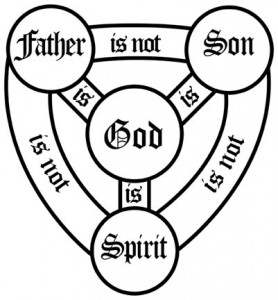 Deuteronomy 7:6 “For you are a people holy to the LORD your God. The LORD your God has chosen you to be a people for his treasured possession, out of all the peoples who are on the face of the earth. 7 It was not because you were more in number than any other people that the LORD set his love on you and chose you, for you were the fewest of all peoples, 8 but it is because the LORD loves you and is keeping the oath that he swore to your fathers, that the LORD has brought you out with a mighty hand and redeemed you from the house of slavery, from the hand of Pharaoh king of Egypt.
Deuteronomy 7:6 “For you are a people holy to the LORD your God. The LORD your God has chosen you to be a people for his treasured possession, out of all the peoples who are on the face of the earth. 7 It was not because you were more in number than any other people that the LORD set his love on you and chose you, for you were the fewest of all peoples, 8 but it is because the LORD loves you and is keeping the oath that he swore to your fathers, that the LORD has brought you out with a mighty hand and redeemed you from the house of slavery, from the hand of Pharaoh king of Egypt.
Jude:21 “keep yourselves in the love of God…”
“Can you imagine it, that God, who is greater than immensity, whose life is longer than time, that God the all-boundless One, should love you? That He should think of you, pity you, consider you, this is all very well—but that He should love you, that His heart should go out to you, that He should choose you, that He should have engraved you on the palms of His hands, that He should not rest in Heaven without you, that He should not think Heaven complete until He brings you there, that you should be the bride and Christ the Bridegroom, that there should be eternal love between Him and you—oh, as you think of it, lift up your hands with adoring wonder and say, ‘Your love to me was wonderful.’” – C. H. Spurgeon
And taken from “Morning and Evening,” by C.H. Spurgeon, revised and updated by Alistair Begg:
“I will rejoice in doing them good.” Jeremiah 32:41
How heartwarming to the believer is the delight that God takes in His saints! We cannot see any reason in ourselves why the Lord should take pleasure in us; we do not even take delight in ourselves, for we often have to groan, being burdened, conscious of our sinfulness and deploring our unfaithfulness. We are fearful that God’s people cannot take much encouragement from us, for they surely can see our many imperfections and our follies, and so be caused to lament our infirmities rather than admire our graces. But we love to dwell upon this transcendent truth, this glorious mystery: As the bridegroom rejoices over the bride, so the Lord rejoices over us.
We do not read anywhere that God delights in the cloud-capped mountains or the sparkling stars, but we do read that He delights in the habitable parts of the earth, and that His delights are with the sons of men. We do not even find it written that angels give His soul delight; nor does He say, concerning cherubim and seraphim, “Thou shalt be called Hephzibah . . . for the LORD delighted in thee.”1 But He does say all that to poor fallen creatures like ourselves-debased and depraved by sin, but saved, exalted, and glorified by His grace.
In what strong language He expresses His delight in His people! Who could have conceived of the Eternal One bursting into a song? Yet it is written, “He will rejoice over you with gladness; he will quiet you by his love; he will exult over you with loud singing.”2 As He looked upon the world He had made, He said, “It is very good”; but when He looked on those who are the purchase of Jesus’ blood, His own chosen ones, it seemed as if the great heart of the Infinite could restrain itself no longer but overflowed in divine exclamations of joy.
Should we not utter our grateful response to such a marvelous declaration of His love and sing, “I will rejoice in the LORD; I will take joy in the God of my salvation?”3
1Isaiah 62:4 KJV
2Zephaniah 3:17
3Habakkuk 3:18

 Heresy is not a victimless crime. Theology matters!
Heresy is not a victimless crime. Theology matters! Dr. David Murray, is the Professor of Old Testament and Practical Theology at Puritan Reformed Theological Seminary. He lives in Grand Rapids with his wife, Shona, and four children.
Dr. David Murray, is the Professor of Old Testament and Practical Theology at Puritan Reformed Theological Seminary. He lives in Grand Rapids with his wife, Shona, and four children.